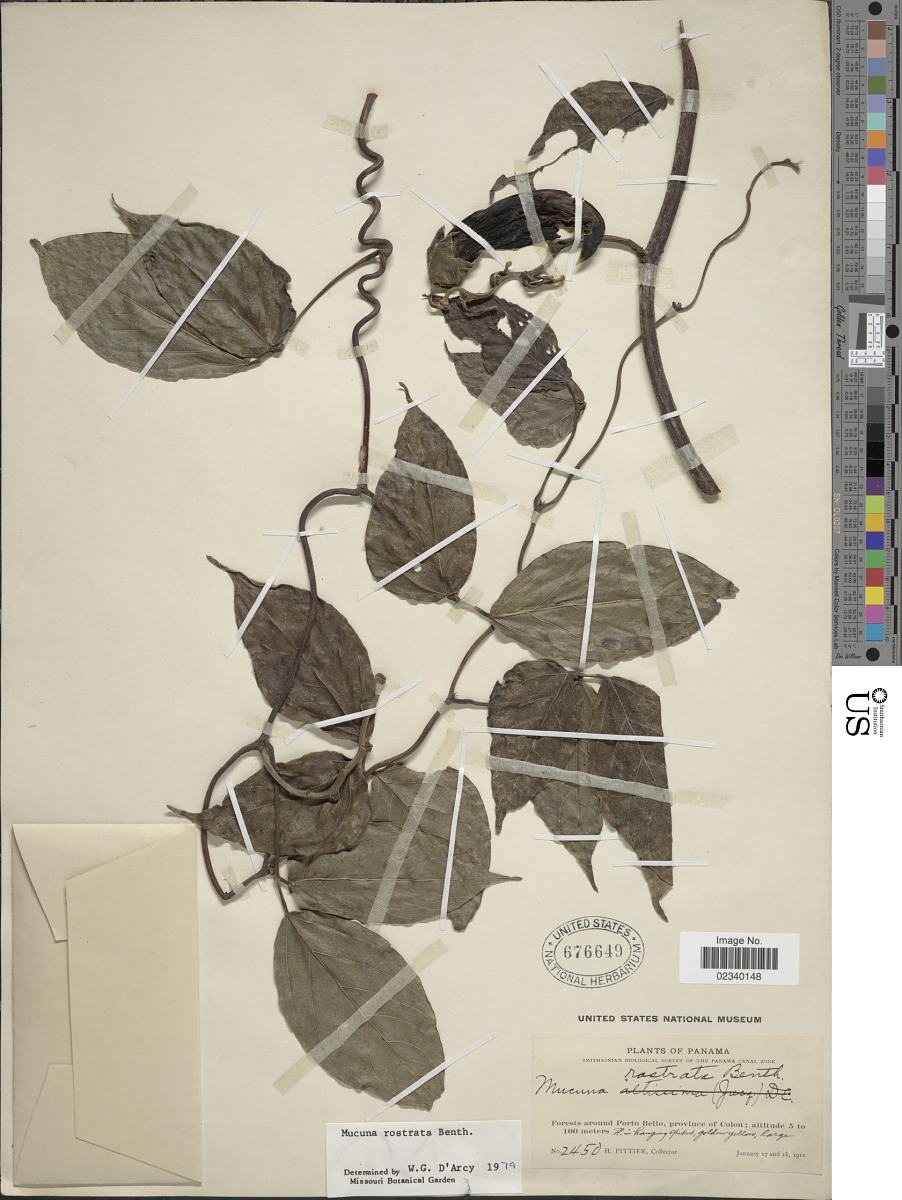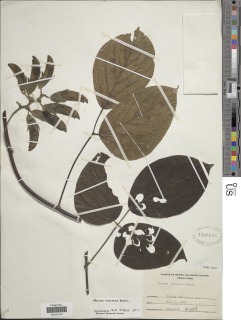

|
|
|
|
Family: Fabaceae
|
Pica-pica Liana; branchlets glabrous, drying dark. Leaves trifoliolate; petioles 5-10 cm long, pulvinate about 1 cm at base; leaflets rhombic-ovate, abruptly acuminate, broadly rounded at base, 10-14 cm long, 6-9 cm wide, the veins at base 3-5, sparsely strigose below. Racemes pendent; peduncles 8-18 cm long; flowers yellow; calyx 5-lobed ca half its length, 2-2.5 cm long, densely pubescent, often also with many, appressed, slender, irritating trichomes; corolla 6-8 (9) cm long; standard orbicular, 4-5 cm long, coriaceous, glabrous, the claw 5-7 mm long; wings 7-8 (9) cm long, ca 16 mm wide, basally auriculate, the keel as long as the wings; stamens diadelphous. Legumes oblong, at least 7 cm long and 2-3.5 cm wide, curved, beaked, bearing erect stinging trichomes, lacking ridges or crests; seeds several, orbicular, ca 2-5 cm diam, somewhat compressed, black. Shattuck 489. Collected once by Shattuck, but not seen in recent years and possibly no longer present on the island. Flowers in the early dry season, usually in December but as late as March. The fruits probably mature late in the dry season. Belize to the Amazon basin. In Panama, known only from tropical moist forest on BCI and in Darien. |



